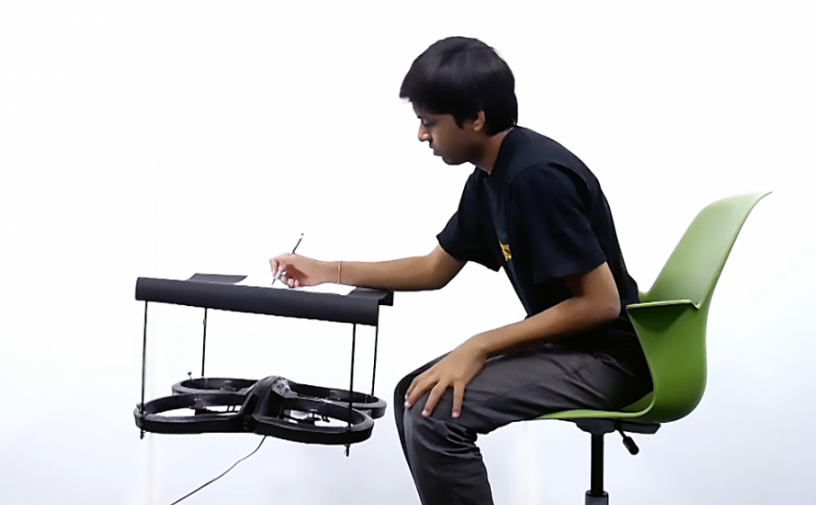Imagine a future where your furniture flies, reacting and responding to your everyday needs. You could have an almost-sentient desk that jets off when it feels you’re over-working, or a remote control that floats over when you think you’ve lost it.
In an interactive project dubbed “L’evolved,” Harshit Agrawal and Sang-Won Leigh, two researchers from the MIT Media Lab’s Fluid Interfaces Group, are exploring how to make everyday objects transform into “flying smart agents.”
To power their flying furniture, the pair used a motion capture system where a camera tracks everything in the room—including the person and the drone, which receives commands from the computer.
They are feeding that data from the computer to the drone so that it can move smoothly to the required position
Drones can’t support much weight yet, so the team opted for a paper tabletop. They soon found, however, that if they placed the tabletop directly on top of the drone, it blocked airflow. To solve this problem, they made the distance between the drone base and its paper tabletop greater so it could keep flying.
.@FluidInterfaces presents L’evolved: autonomous and ubiquitous utilities as smart agents http://t.co/W70jfIJvTN
— MIT Media Lab (@medialab) October 8, 2015
